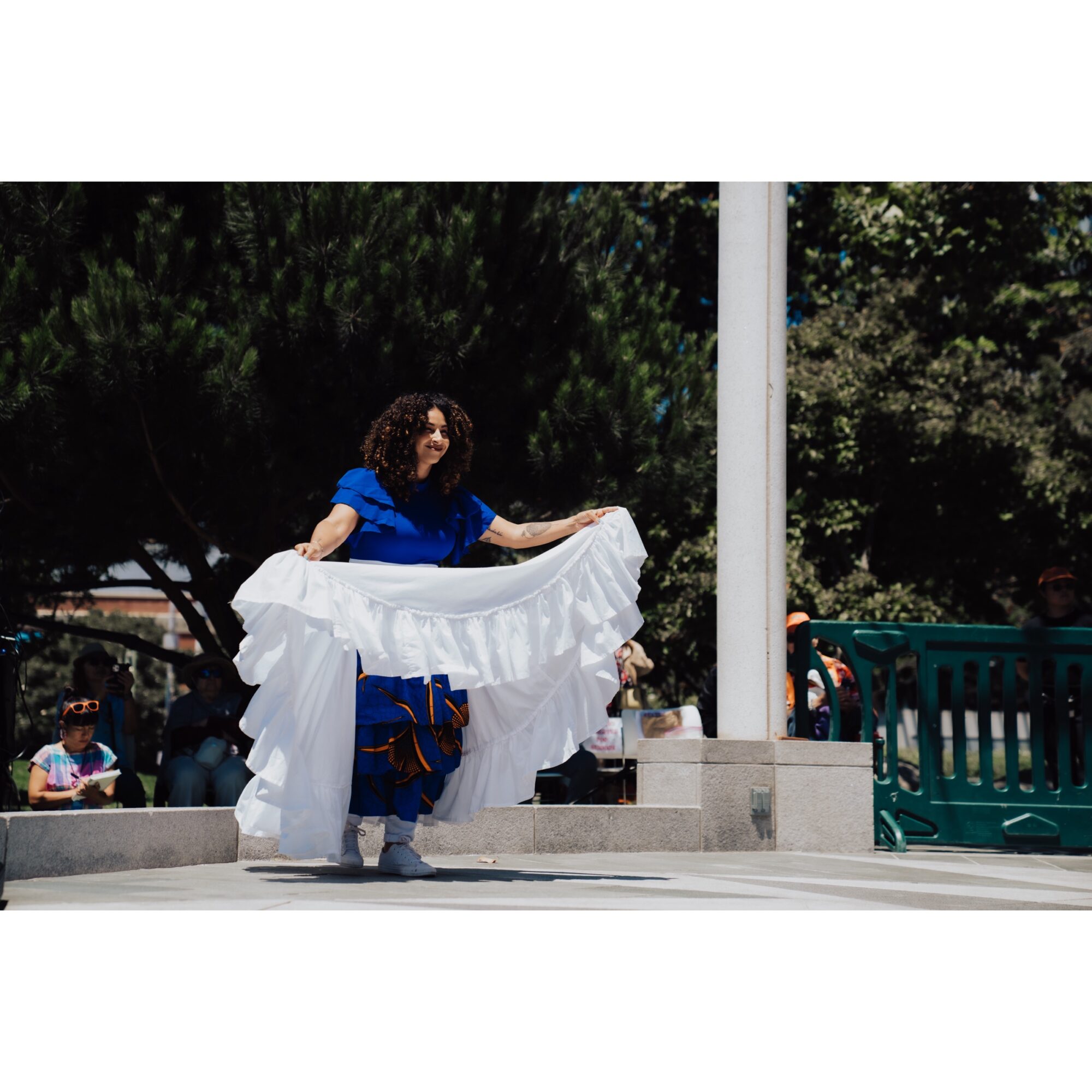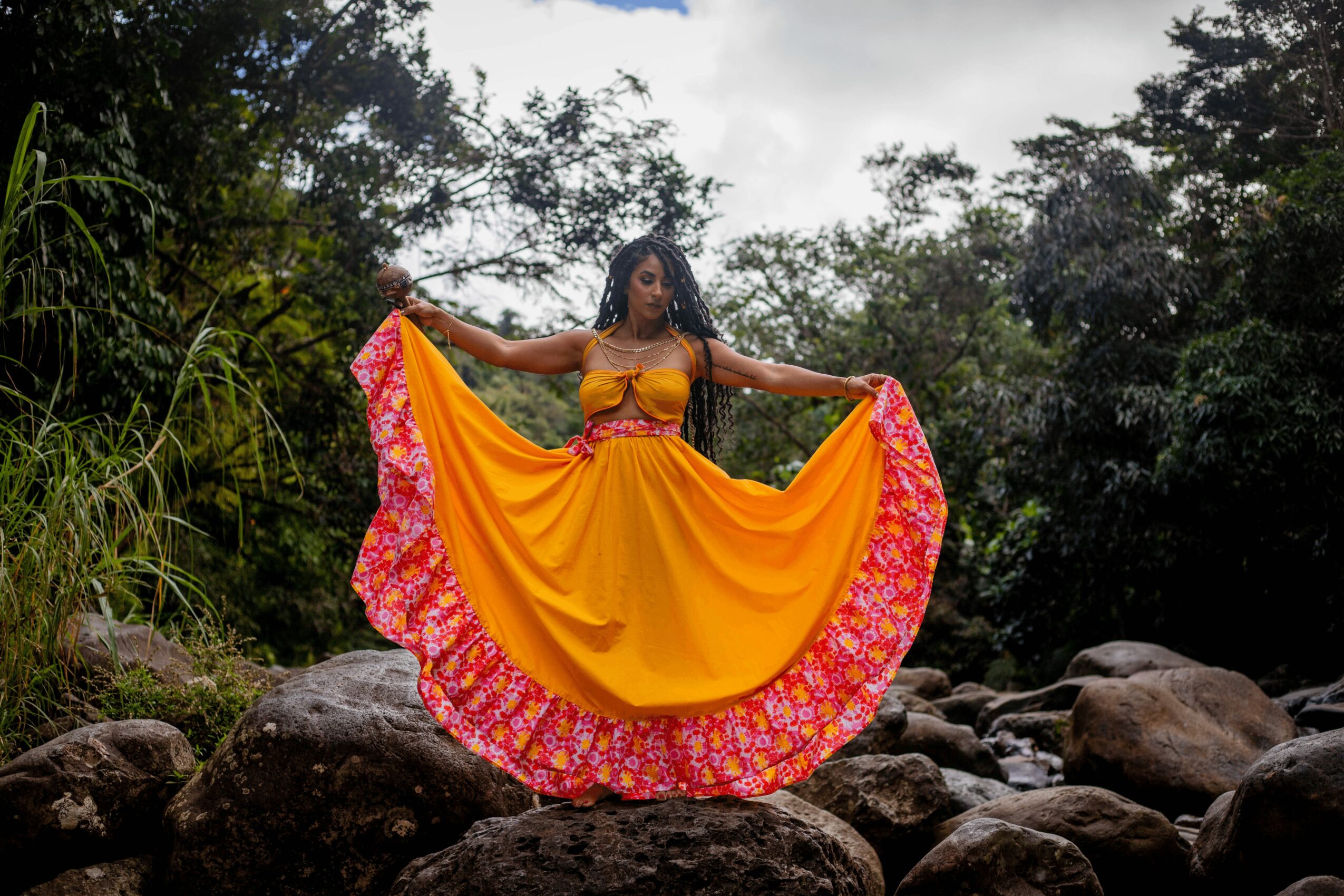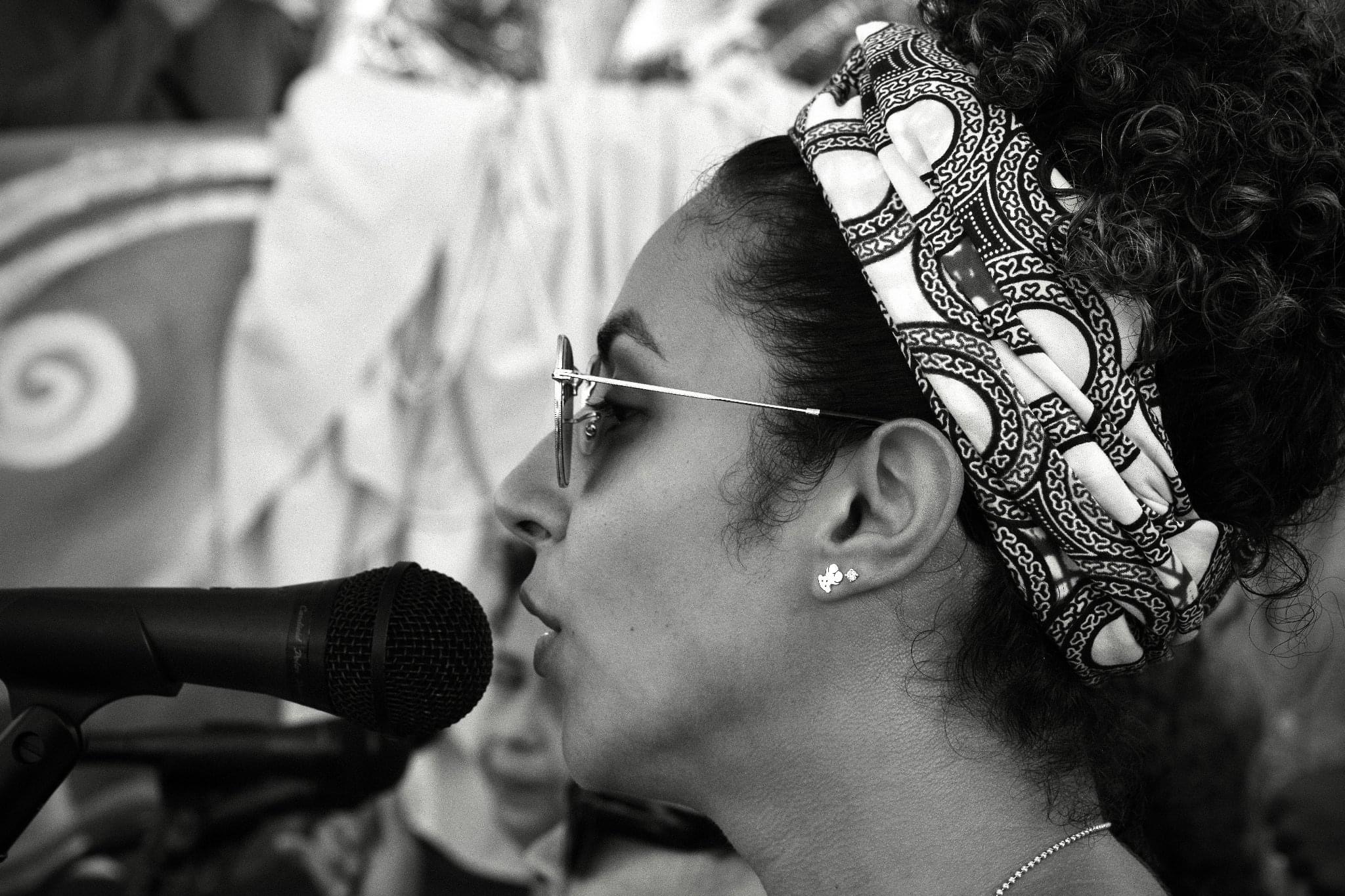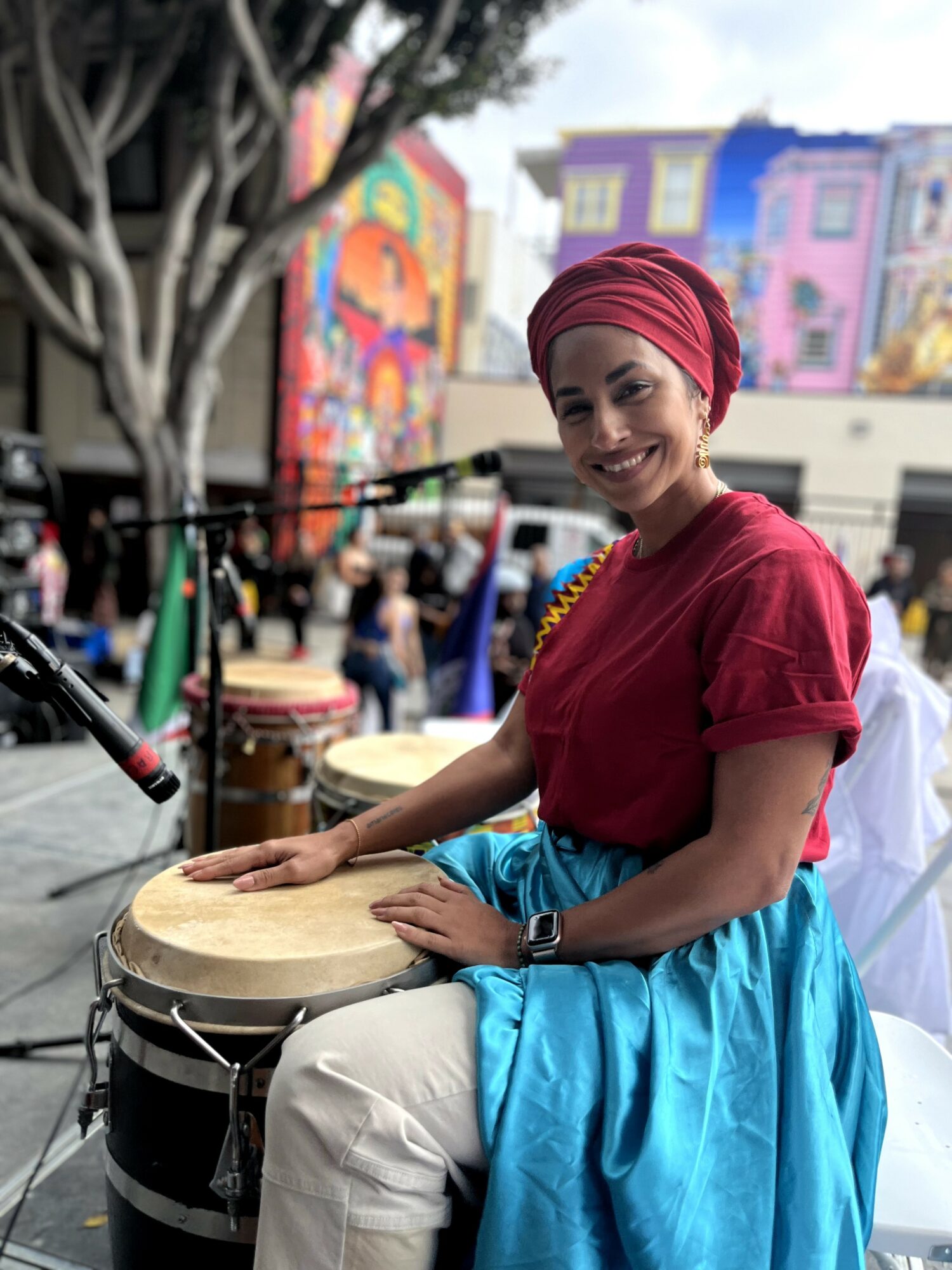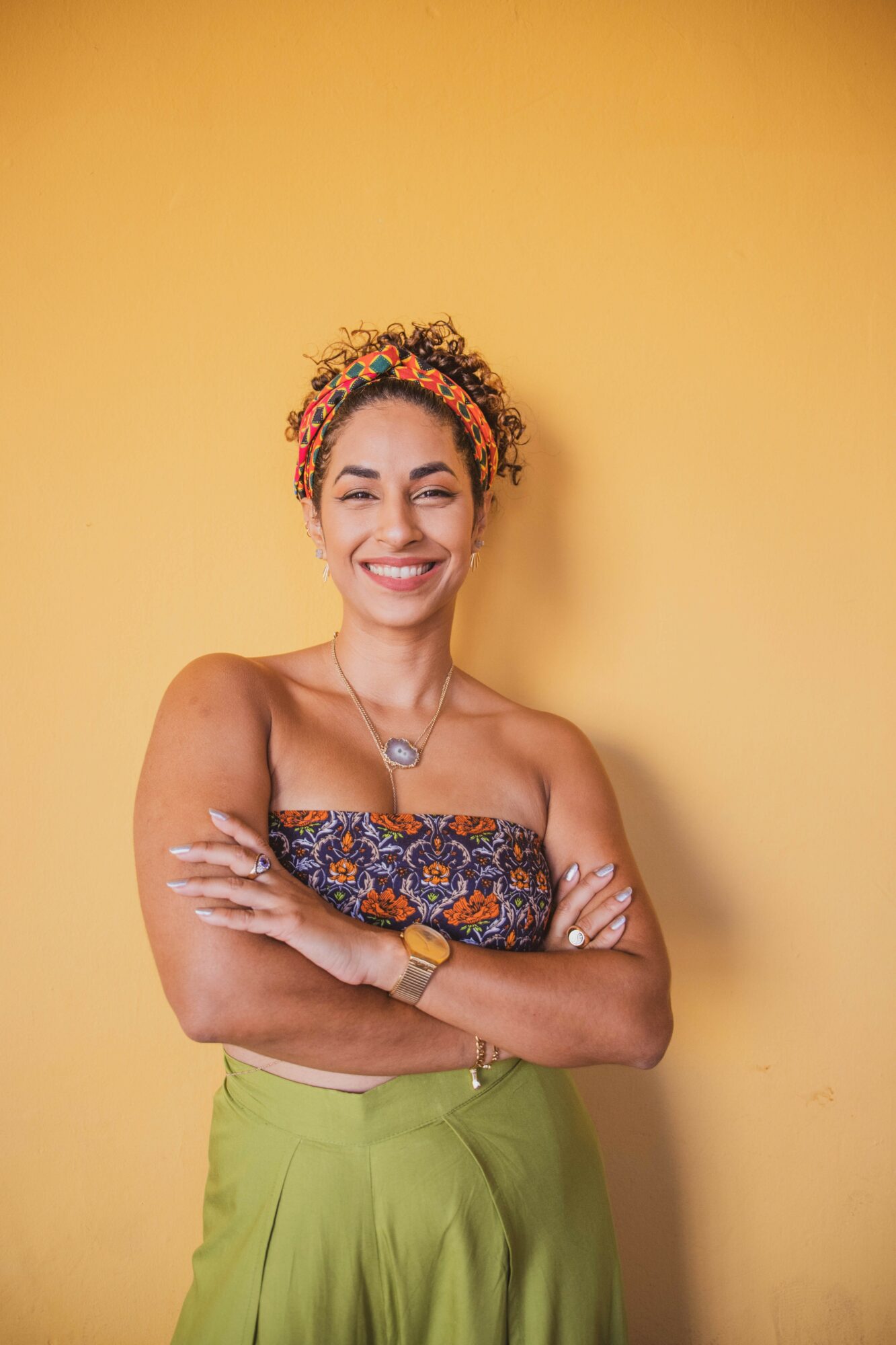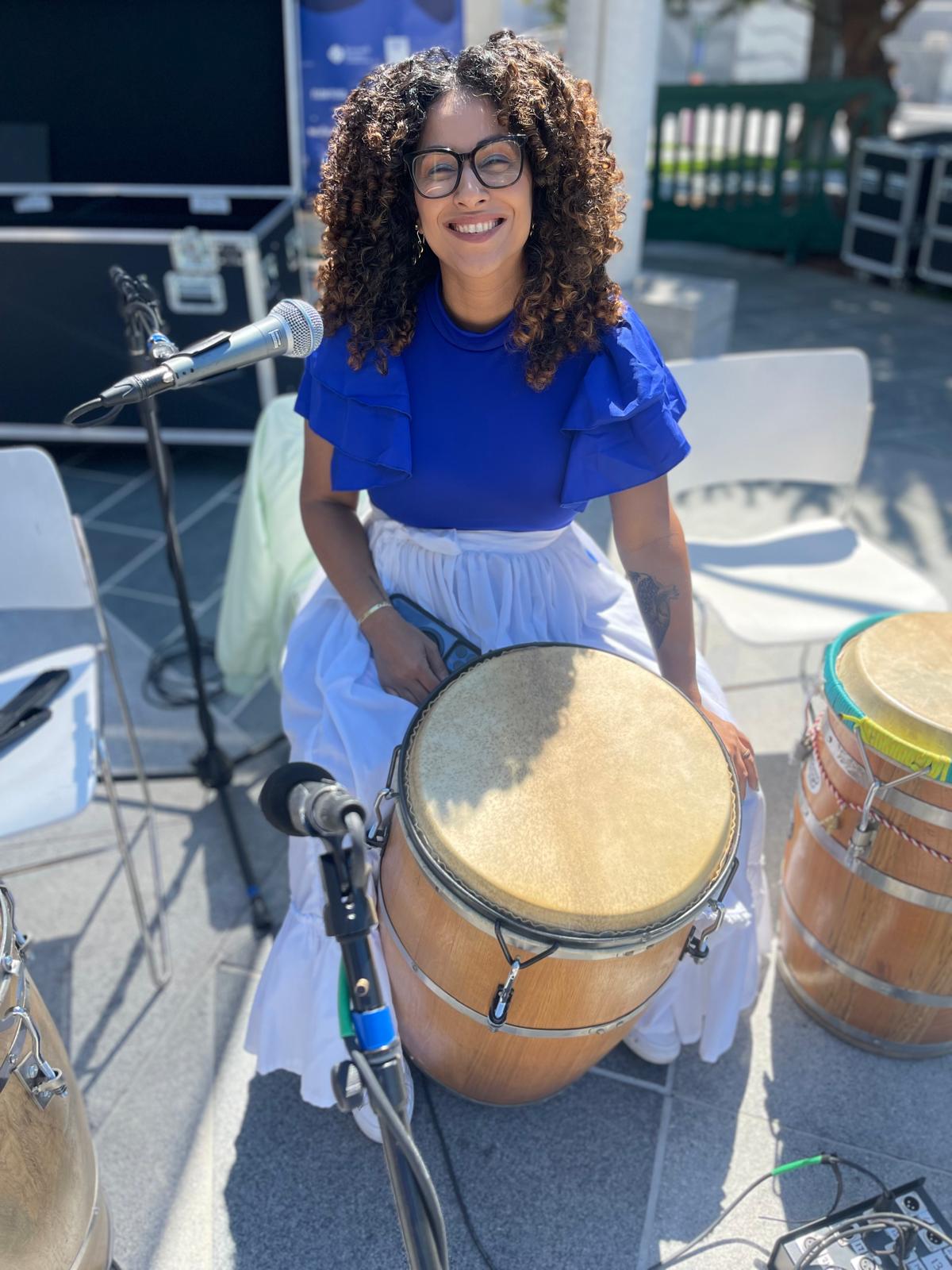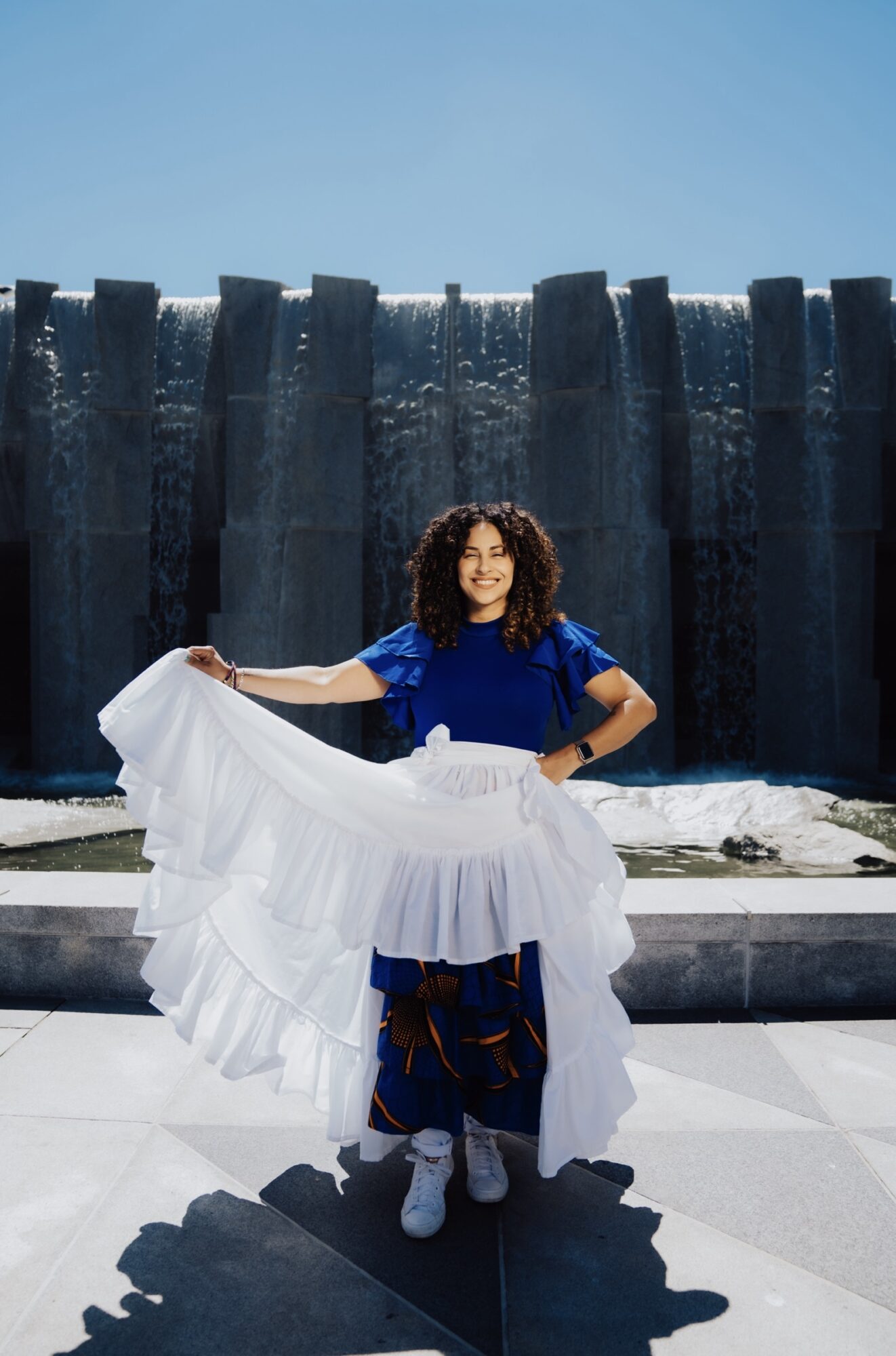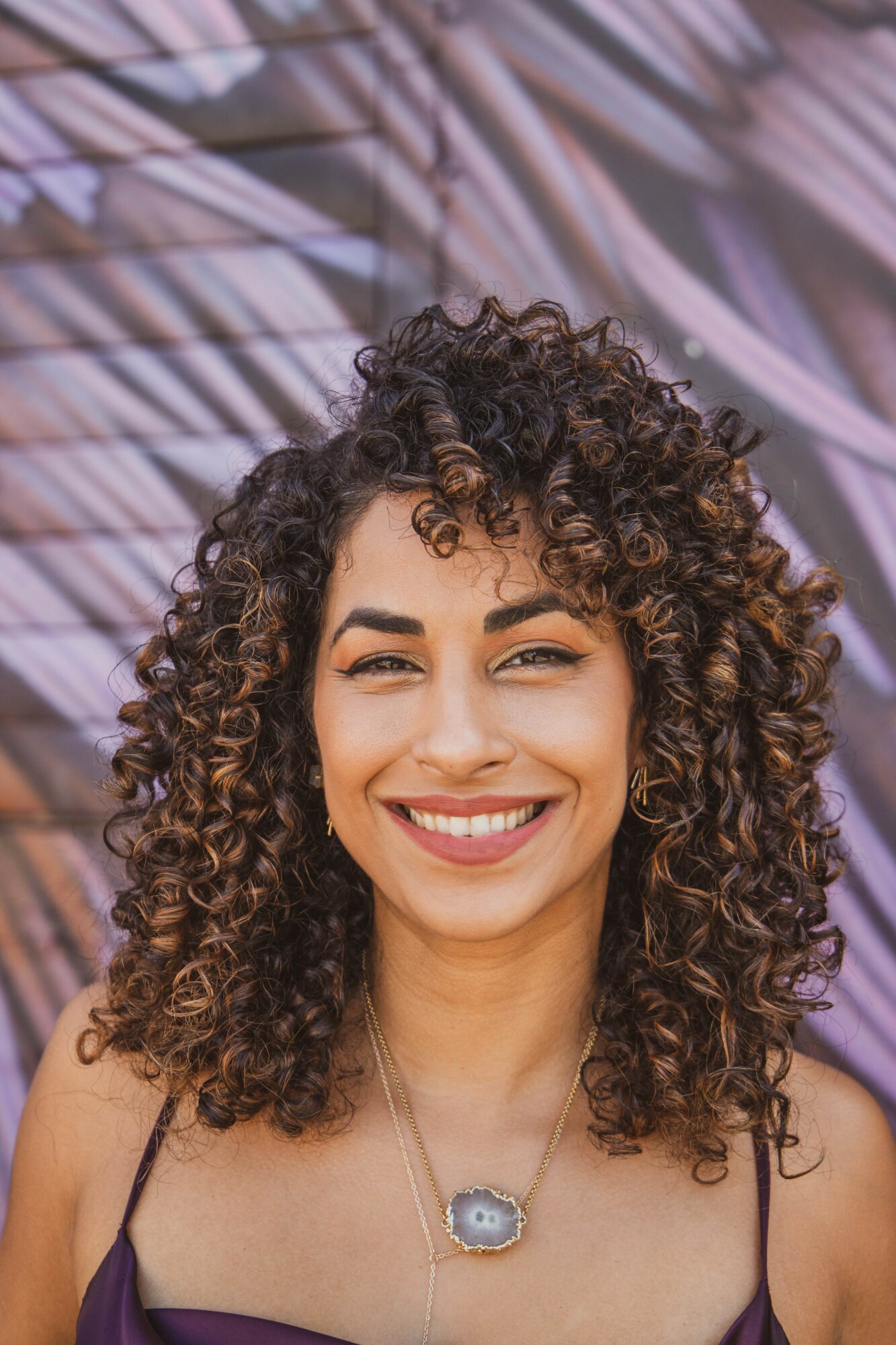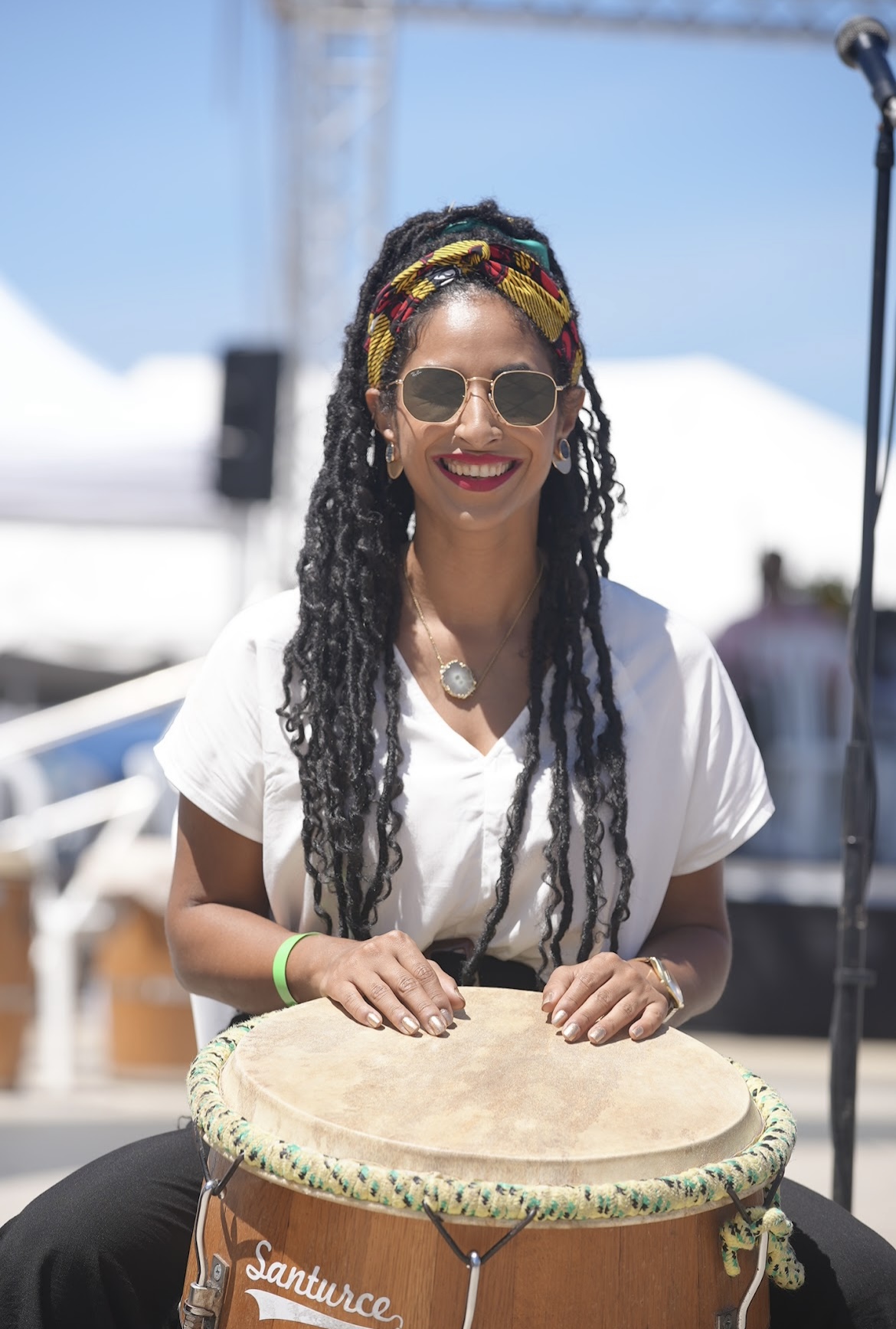

Today we’d like to introduce you to Alexandra Rosado Román.
Hi Alexandra, can you start by introducing yourself? We’d love to learn more about how you got to where you are today?
My journey as a bombera began in 2018, when I encountered bomba not just as a dance form, but as a living archive of Afro-Puerto Rican memory and resistance. Coming from a very conservative Pentecostal household, I grew up distanced from our ancestral rhythms and embodied expressions. My early formation reflected the legacies of colonization—where certain ways of moving, knowing, and being were policed or suppressed.
Encountering bomba disrupted that inheritance. It became both a medium and a language to express musicality through movement—a way to speak what had long been silenced. As a Black and Afro-diasporic tradition, bomba revealed to me the stories and knowledge systems erased by colonial narratives. Through rhythm, song, and embodiment, it opened a path toward cultural reclamation and healing.
In the batey—the dance space—I learned to unlearn: to release colonial logics carried in my posture, gestures, and ways of relating to others, and to deem worthy what had once been demonized. Dancing became both a political and spiritual act of remembering—a practice of returning dignity to what empire taught us to fear or forget. The anti-colonial pulse of bomba remains urgent today, especially as Puerto Rico continues to live under U.S. colonial rule. Bomba not only reclaims and nurtures our Black and Indigenous heritage—it transforms resistance into collective joy and creative survival.
When I relocated to Texas, I found that bomba was not as accessible, frequent, or established. That absence became a calling. I began offering dance and drumming classes and hosting bombazos—community gatherings of rhythm, food, and shared memory—so that others could experience this living tradition of liberation.
Those efforts evolved into Bámbula Studio LLC, a creative and educational platform I founded to honor and share bomba through dance, cultural education, and decolonial storytelling. Today, Bámbula Studio offers classes, workshops, and collaborations that center bomba’s artistry and philosophy as a way of knowing, healing, and belonging.
For me, to dance bomba is to remember—to listen deeply to the drum, to the land, and to one another—and, in that remembering, to move toward wholeness.
Would you say it’s been a smooth road, and if not what are some of the biggest challenges you’ve faced along the way?
Working within Afro-diasporic and decolonial traditions means constantly navigating spaces that don’t always recognize or honor the depth of bomba—as both history and living practice. I’ve often had to create the conditions for it to exist: building community, finding musicians, and educating audiences while holding firm to its ancestral and political roots.
Stepping forward as a leader, teacher, and community organizer has also been deeply humbling—and at times, intimidating. There is great responsibility in carrying these roles, especially within a tradition that is not only art but lineage. For me, that wasn’t an obstacle, but rather an ongoing and serious conversation with myself—about accountability, integrity, and purpose.
As a mother and a graduate professor, balancing care, creativity, and academic work has been one of my greatest lessons. Starting over in Texas meant rebuilding everything from the ground up—with patience, persistence, and faith in the power of the drum to gather and sustain people.
Appreciate you sharing that. What else should we know about what you do?
My work centers on bomba, the oldest Afro-Puerto Rican and Afro-diasporic genre that unites dance, song, and drumming in a dynamic exchange between the dancer and the drum. Within this broad tradition, I teach specifically bomba from the San Mateo de Cangrejos lineage—known as bomba cangrejera. Each region of Puerto Rico carries its own particular style, rhythm, and way of moving, and part of my practice is to honor those local distinctions while tracing their shared story of survival, creativity, and resistance.
What distinguishes my work from others is that I teach from an Afro-Caribbean and decolonial academic background, grounding every class and workshop in cultural history, critical theory, and reflection. This approach bridges scholarship and embodiment, allowing students to understand bomba not only through rhythm and movement, but through its relevance to contemporary conversations about race, coloniality, and belonging.
I’m most proud of creating spaces—whether in universities or community gatherings—where people can reconnect with ancestral knowledge and feel empowered to see bomba as both a practice of joy and a form of resistance. Through Bámbula Studio, I strive to honor the ancestors who carried this tradition forward while nurturing a new generation that continues it with consciousness, purpose, and care.
Is there something surprising that you feel even people who know you might not know about?
Something that often surprises people is that I also write poetry—and that one of my poems has been published. My writing explores what it means to live in between worlds: it reflects on my diasporic self and the liminality we inhabit as Puerto Ricans navigating belonging, distance, and return.
My poems draw inspiration from Puerto Rico’s landscapes, its elements, and the lives of personas ilustres who have shaped our collective memory. I often write about amor y desamor—love and heartbreak—as well as about my diasporic self and the liminality that we inhabit, tracing how identity, memory, and longing intertwine across geographies.
I’ve written pieces inspired by Julia de Burgos, whose poetic vision reminds me that writing, like dancing, can be an act of liberation. Through poetry, I find another way to honor the island’s memory—to translate what I feel through movement into words.
I’m also a scholar and professor who teaches ethics and decolonial thought at the graduate level. My academic work and my artistic practice speak to each other constantly—one through theory, the other through rhythm and movement.
For me, poetry and bomba come from the same impulse: to remember, to resist, and to reimagine. Both invite me to listen—to the land, to history, and to the voices that continue to guide us forward.
Contact Info:
- Website: https://www.bambulastudio.com
- Instagram: @bambula_studio
- Youtube: Bambula Studio LLC
